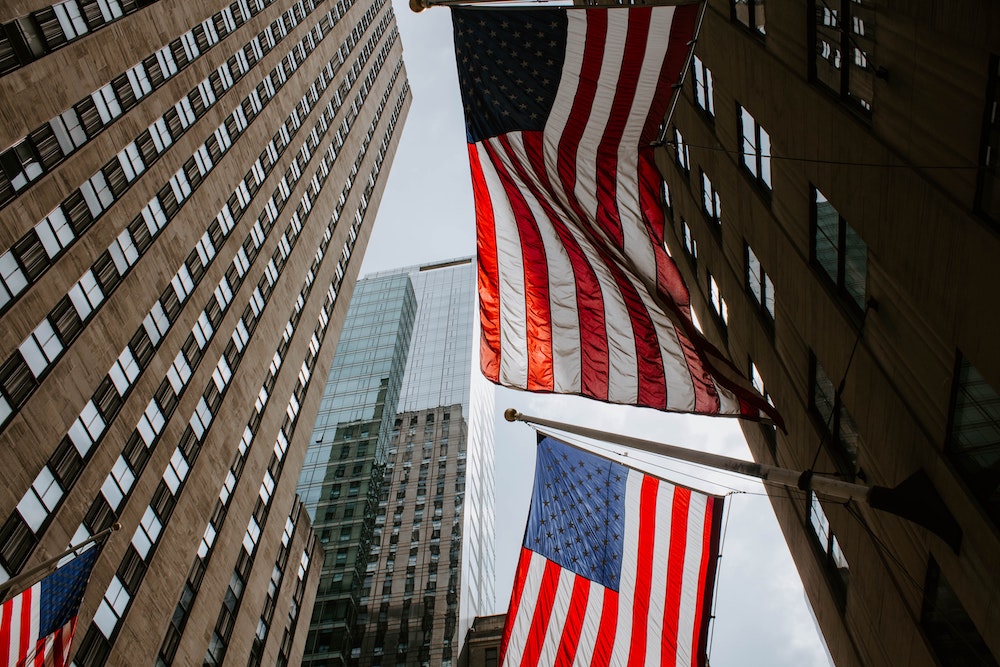Countries Now Labeling United States As A Travel Risk
Countries like Australia, Germany, and Mexico have labeled the United States a travel risk because of recent shooting incidents and other issues.
This article is more than 2 years old

Most American travelers are familiar with the U.S. State Department’s travel advisories that provide up-to-date information about the potential travel risk involved in going to an international destination. These color-coded advisories range from 1 (Exercise normal precautions) to level 4 (Do not travel). Although the United States has generally been considered a safe destination, gun violence has caused some countries to start issuing warnings about visiting America.
Travel risk advisories alert visitors about health issues, terrorism threats, crime rates, and more. As the rate of gun-related deaths in the U.S. rises and mass shootings have made headlines around the world, it’s natural to wonder what other countries say to their citizens about coming to America. CNN Travel looked into what nine of the U.S.’s closest allies and neighbors are saying about us.
It’s good news that these countries aren’t telling their citizens to avoid the U.S. like they would a war zone or terrorist hot spot. They also point out that tourists are rarely targets of the kind of violent crime that makes headlines. However, they do provide travel risk warnings that the United States has become more violent than their own countries.
Australia’s SmartTraveller website warns its citizens that it’s legal for Americans to openly carry guns in public and that people who choose to live here should “learn active shooter drills.” It also says, “Violent crime is more common than in Australia and gun crime is possible in all areas. Follow local guidance and instructions.”
Neither Australia nor Canada warns people against traveling to the U.S. Canada advises its citizens to observe normal security measures while visiting America, but to take extra precautions at our border with Mexico. Canada’s travel risk advisories also mention the potential for stumbling upon “criminal incidents associated with drug trafficking” when traveling at night in border towns and large urban areas.
The United Kingdom’s travel risk advice includes the same warnings about large cities and the U.S.-Mexico border. They add that travelers should never make terrorism jokes, especially in airports. They also say that mass shootings can and have occurred, but rightly include that they account for “a very small percentage of homicide deaths.”
As for Mexico’s travel risk warnings to its citizens visiting their northern neighbor, they focus on the potential for violence related to racial and ethnic tensions. One advisory cites an El Paso, Texas mass shooting where more than 20 people were killed. Mexico’s government advises its citizens to always carry their Mexican passport and avoid large crowds where rioting could erupt.
France lists America as one of the safest countries when it comes to travel risk, but also provides specific information about crime in certain cities. Visitors to Boston are told, “it is recommended to avoid traveling alone, on foot and at night, in certain parts of Dorchester, Mattapan and Roxbury.” French tourists visiting Atlanta are told to “be vigilant in isolated areas of the city center (downtown) after the close of business and favor taxi travel at night.”
Germany’s Ministry of Foreign Affairs warns of U.S. travel risks related to gun violence. Potential visitors are reminded that it’s easier to obtain firearms in the U.S. than in Germany and to beware of large gatherings. New Zealand’s warnings are similar, and they take the extra step of directing them to an active shooter response pamphlet published by the U.S. Cybersecurity & Infrastructure Security Agency.
Despite a rise in anti-Semitic incidents, Israel gives the U.S. its best safety rating. Because of the level of terrorism the tiny country continually faces, it saves its harshest travel risk warnings for countries experiencing citizen-focused terrorism. Israel is less concerned about general crime issues.
Japan, however, takes an entirely different approach, providing specific actions to take if travelers find themselves in an active shooter situation. Travel risk advice includes hiding in a room and barricading the door, muting cell phones and escaping even if it means leaving alone. If those actions are impossible, Japanese citizens are told to “throw things close to the criminal, use them as weapons; scream; act with all your might.”





